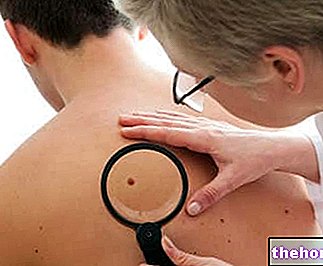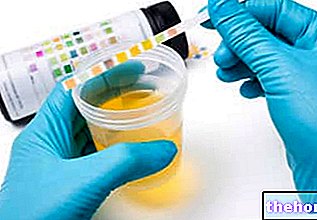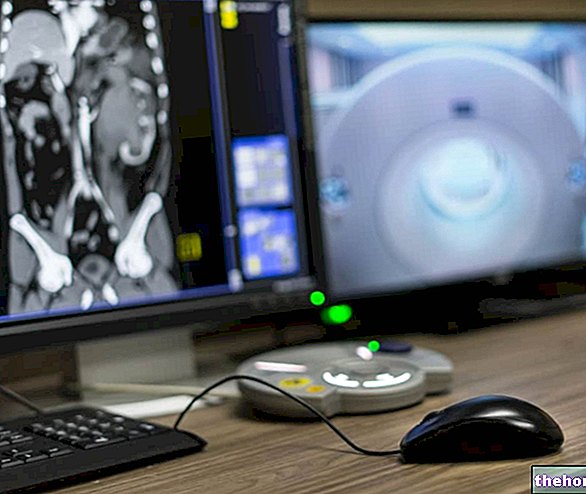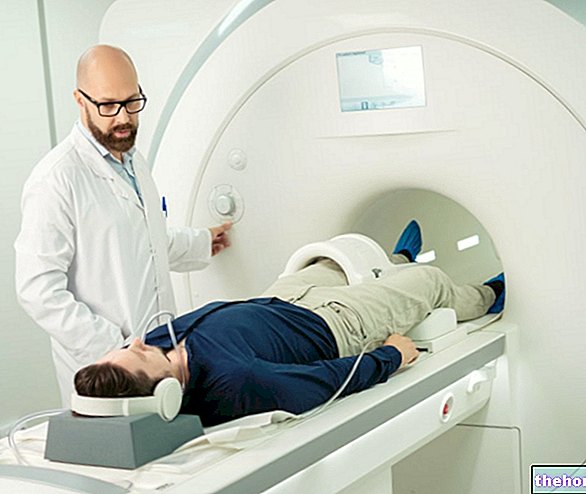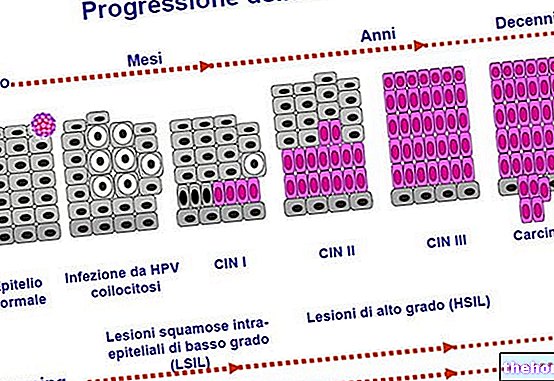Generality
The MAR Test is a "study performed on seminal fluid, in order to evaluate the state of" infertility of the man.

The ASAs that bind to spermatozoa can damage their fertilizing capacity at various levels: they induce an immobilizing effect, promote the appearance of agglutinations (adhesions) and interfere in the interaction with the oocytes, making fertilization critical or impossible.
The MAR Test therefore allows the diagnosis of male infertility of an immunological nature to be established and allows the couple to be directed to the most appropriate treatment.
What is it for?
The MAR Test is a direct diagnostic test, performed on seminal fluid for the determination of anti-spermatozoa antibodies adhering to the surface of male gametes. If the latter are present in a significant degree, they could be the cause of immunological infertility.
This condition is present in about 10% of cases of reduced success of unexplained (idiopathic) male fertilization.
Anti-Sperm Antibodies
Anti-sperm antibodies are considered an immunological diagnostic marker of infertility. Their dosage is generally done by radioimmunoassay or immunoenzymatic method. Amounts of anti-sperm antibodies above 50% are often associated with reduced fertilization success, while concentrations above 90% practically exclude the possibility of spontaneous pregnancy.
In humans, ASAs are produced by a defect in the blood-testicular barrier, which normally avoids the diffusion of large hydrophilic molecules (including antibodies) in the seminiferous tubules. The interruption of this structure involves the exposure of the spermatozoa to the cells of the immune system, which recognizes them as "non self" (ie they consider them a foreign element), since they have a haploid chromosomal set (ie made up of 23 chromosomes, instead of 46 like all the other cells present in our body).
The consequence is an immune reaction with the production of auto-antibodies against the patient's spermatozoa. This determines the reduction of the normal fertilizing capacity of the male gametes.
The alteration of the blood-testicular barrier and the development of anti-sperm antibodies can be due to various causes, including:
- Inflammations (eg orchitis, local inflammation of the testicle, etc.);
- Testicular trauma;
- Varicocele;
- Testicular torsions;
- Infections of the genital system;
- Malignant testicular tumors;
- Obstructions of the seminal tracts;
- Vasectomy.
Sometimes, there are no apparent causes.
Anti-sperm antibodies can attach to different parts of the sperm and interfere with fertility in several ways. If these interact with the tail (flagellum) of the male gametes, they tend to reduce their motility and make them clump together; when they adhere to the head, on the other hand, they can prevent efficient penetration through the female cervical mucus and alter the sperm-oocyte interaction.
ASAs can also induce the formation of substances that can directly damage spermatozoa.
The most important classes of anti-sperm antibodies are human immunoglobulins of the classes G (IgG) and A (IgA).
Note
Both sexes can produce antibodies that react with human sperm: in addition to those present on the surface of male gametes, ASAs can be found in the blood (both of men and women) and in female cervical mucus.
Indications
In the evaluation of seminal fluid, the alteration of which is often indicative of specific pathologies, the MAR Test is an optional examination, whose execution is usually recommended in the absence of other explainable causes of infertility.
Once the spermiogram has been performed, the presence of anti-sperm antibodies should be suspected when:
- Astenozoospermia (ie poor sperm motility) is not associated with a reduction in the number of male gametes;
- The presence of agglutinations in the seminal fluid is evident;
- It is in the presence of autoimmune diseases or unexplained infertility (i.e. in an apparently normal condition).
The MAR Test allows you to diagnose:
- The presence of anti-sperm antibodies on the surface of the spermatozoa;
- The percentage of motile spermatozoa that have antibodies;
- The localization of antibodies on the surface of the male gamete (head, middle section and tail).
Procedure
“MAR” is the English acronym for “Mixed Anti-globuline Reaction”, ie mixed agglutination test.
In practical terms, the seminal fluid sample is incubated with latex spherules coated with human immunoglobulins of classes G and A (or suitably treated erythrocytes). An anti-IgG or anti-IgA antibody is then added to the sperm suspension.
In the case of the presence of antibodies adhered to the surface of the male gametes, the spermatozoa will bind to the latex particles and an "agglutination for the antigen-antibody reaction will be observed (head-head, tail-tail or head-tail adhesion of motile spermatozoa). .
An "immunological infertility is conceivable if more than 50% of motile spermatozoa are attached to the latex particles.
Pre-examination indications
The MAR Test is an "investigation performed on fresh seminal fluid.
Before the examination it is essential to scrupulously observe some indications:
- Maintain a sexual abstinence in the previous 3-5 days.
- If possible, discontinue drug therapies with anti-inflammatory drugs, antibiotics, hormones, and corticosteroids.
- The collection of seminal fluid should preferably be done in the laboratory where the analysis is carried out, for a reading within one "hour of emission". In exceptional cases, the sample can be collected in a suitable container (such as the sterile one for the " urinalysis) in a home environment, protecting it from thermal excursions (it must be kept at a temperature between 20 ° and 37 ° C). When collecting semen by manual masturbation, care must be taken not to lose sample fractions.
Note
Anti-sperm antibodies can be indirectly searched for in seminal plasma through the GAT Test (Gelatin Agglutination Test). The latter method is based on a gelatin flocculation reaction that uses motile spermatozoa as the antigen.
Immunological infertility: treatment
If possible and when present, treatment of the pathological condition that induced the development of anti-sperm antibodies is essential.
The medical therapy of immunological infertility involves an immunosuppression by administering high doses of corticosteroids, which temporarily reduce the amount of anti-sperm antibodies (hence infertility). However, it is necessary to report the possibility of important side effects, such as gastric damage and muscle, weight gain or high blood pressure.
In men with a very high ASA titre, assisted fertilization techniques are effective, including intra-cytoplasmic sperm injection (ICSI) and intrauterine insemination (IUI).


